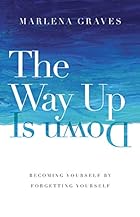 Summary: An exploration of Kenosis, voluntary self-emptying, a renunciation of my will in favor of God’s.
Summary: An exploration of Kenosis, voluntary self-emptying, a renunciation of my will in favor of God’s.
Kenosis has a long history. Biblically, it is rooted in Philippians 2 with Jesus ‘giving up’ his divine being and ‘adopting’ a human form. The language has always been challenging because it is inadequate to represent what is going on entirely. Jesus did not cease to be divine when he became human. The adoption metaphor has weaknesses because there is a history of its use as a means of denying that Jesus was entirely God or that he was created, not eternal. But despite the inadequacy of the language around Kenosis, the concepts underneath it are important. Jesus’ prayer, “not my will, but yours be done,” was not a denial of his divinity but the fulfillment of it. If Jesus could empty himself of his will in a biblically appropriate way, then we, as entirely created, should also think about how we appropriately give up our own will.
Part of the problem of discussing Kenosis isn’t just the inadequacy of the language but the history of abuse. Kenosis has been used to justify abuse and oppression throughout Christian history. It has been used to tell slaves to submit to masters or to perpetuate economic or cultural inequity. It has been used to support gnostic leaning beliefs around the sinfulness of the body or patriarchal attitudes toward women. It has been used to deny people the right to justice in regard to sexual and other forms of abuse inside the church.
It is in part because of this misuse of the concept that I am reluctant to read white males talk about Kenosis and why, despite a bit of reluctance to initially pick up The Way Up Is Down, it is important that a Puerto Rican woman writes this book. As I have said frequently, I am midway through my training to become a Spiritual Director. The literature on spiritual direction and spiritual formation is overwhelmingly from a White male perspective. Most of my non-assigned reading has been an attempt to make up for the weaknesses of my assigned reading. Marlena Graves is a pastor and professor of spiritual formation. As far as I am aware, she is not a spiritual director (it is not explicitly mentioned in the book that I remember), but the type of spiritual wisdom throughout the book is in that vein.
The history of Christianity is replete with language that invokes Kenosis. Christianity’s spiritual writers are continually talking about “offering ourselves out of love for God, others and creation” and the tension of “[not wanting] to do what God calls us to do.” Marlena Graves’ quote from Stephen Freeman, an Eastern Orthodox priest, gets at this as well:
“If we are to be transformed ‘from one degree of glory to another’ then it it is toward the ‘glory’ of the crucified, self-emptying Christ that we are beign transformed…[F]or there is no other kind of life revealed to us in Christ.”
The history of Christianity is covered to show that resistance to Kenosis isn’t new. But we also have particular problems giving up our will in our current individualistic, consumeristic, utilitarian, power-rich world. The problems of showing, not just talking about or praying for, tangible justice is important. And engaging those who have previously called us toward service and visible justice can help remind us why that is important. In a discussion of Frederick Douglass, Graves says:
“Christianity lived out in mental abstraction, in our heads alone, isn’t Christianity. Douglass nailed it when he declared, “I love the pure, peaceable, and impartial Christianity of Christ; I therefore hate the corrupt, slave-holding, women-whipping, cradle-plundering, partial and hypocritical Christianity of this land. Indeed, I can see no reason but the most deceitful one for calling the religion of this land Christianity.”
Much of the book is about how spiritual disciplines of prayer, fasting, repentance, attention to the oppressed, remembering the shortness of life (memento mori), etc, are essential to the Christian life and the tension of Kenosis. Like many books of spiritual wisdom, the importance of the book is not in its originality but in calling the reader back to the historical wisdom of the church that has always been affirmed. We do, however, need to continually process how these historic beliefs and practices relate to the modern world, and so well-written books like this will always be required to refocus us back to the issues of first importance.
The Way Up Is Down: Becoming Yourself by Forgetting Yourself by Marlena Graves Purchase Links: Hardcover, Kindle Edition